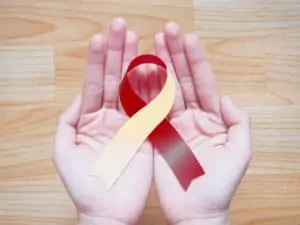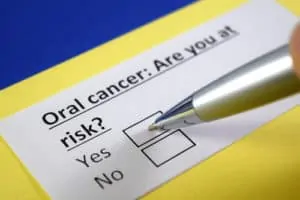Oral Cancer

Understanding the Significance of Mouth Cancer
Mouth cancer, also known as oral cancer, can affect various parts of the mouth, including the lips, tongue, gums, and even the throat. It’s a potentially life-threatening condition, with early detection playing a crucial role in successful treatment. The prevalence of mouth cancer has been increasing steadily, and yet, awareness about this condition remains relatively low. Mouth Cancer Action Month strives to change that.
Mouth Cancer Action Month: An Overview
Mouth Cancer Action Month, held annually in November, serves as a pivotal platform for raising awareness about mouth cancer. The Mouth Cancer Foundation, a UK-based charity, takes the lead in organizing this campaign, but the message applies to everyone around the globe. Their website is a valuable resource for those looking to understand the initiative and get involved. Four key pillars of Mouth Cancer Action Month that help with various needs surrounding this serious condition.
- Education and Awareness
One of the primary goals of Mouth Cancer Action Month is to educate people about the risk factors, symptoms, and prevention of mouth cancer. The campaign provides a plethora of resources, from informative articles to videos, to help individuals understand the disease. They also emphasize the importance of regular dental check-ups with your dentist in Sparks as dentists can often spot the early signs of mouth cancer – when it’s more easily treatable.
- Early Detection
Early detection is a key factor in improving the prognosis for mouth cancer patients. The campaign encourages individuals to be vigilant and seek medical attention if they notice any potential signs, such as ulcers that don’t heal, unusual lumps, or persistent pain. By spreading awareness of these symptoms, Mouth Cancer Action Month can save lives through early diagnosis.
- Prevention
Preventing mouth cancer is another crucial aspect of the campaign. Certain lifestyle choices can increase the risk of developing the disease such as:
- Smoking
- Alcohol use
- Sun exposure
- Poor diet
- Human papillomavirus (HPV) infection
- Support and Community
Mouth Cancer Action Month also aims to provide support to patients and their families. The Mouth Cancer Foundation offers a space for individuals to share their stories, find comfort in a supportive community, and access resources that can assist them during their journey. This sense of community can be a source of strength for those affected by mouth cancer. Additionally, you can access free resources and information on the Mouth Cancer Foundation’s website.
Mouth Cancer Action Month is a valuable campaign that has the potential to save lives by talking openly about a condition that’s often overshadowed by other health concerns, but just serious. Remember, early detection can make all the difference in the fight against mouth cancer. If it’s been longer than six months since your last dental checkup, schedule an appointment with your dentist in Sparks today.

Oral Cancer Signs & Symptoms
Some of the early signs of oral cancer can easily be confused with other non-serious oral health conditions. This is one thing that can make oral cancer tricky to catch. However, if any of the signs and symptoms below don’t go away within 2-3 weeks, schedule an appointment with your Sparks dentist to get checked out.
- Chronic cough
- Changes in voice
- Difficulty swallowing
- An earache on one side
- A hard lump in the soft tissues
- Swollen tonsil on one side without pain
- A painless lump on the outside of the neck
- Any sore that doesn’t heal itself within 2-weeks
- Discoloration in the mouth including a red, white, or black appearance
Check Your Mouth Initiative
Created by The Oral Cancer Foundation, the Check Your Mouth public health initiative was designed to help people self-identify potential abnormalities in the mouth. Now, while this tool is incredibly helpful for those at-home checks, they don’t replace your dentist. The best way to truly diagnose oral cancer is through your dentist in Sparks. This is one reason why bi-annual dental visits are so important as they allow your dental team to see any changes that may have occurred since your last appointment and treat them appropriately.
Reduce The Risk
Oral cancer can happen to anyone at any time. But there are a few people who are at increased risk of developing oral cancer, including:
- People 50 or older — Oral cancer tends to be most prominent after 50.
- Current or former tobacco users — 80% of those who get oral cancer either currently use tobacco or did at one time.
- Heavy drinkers — Another habit that can increase the risk of oral cancer is drinking alcohol heavily. Nearly 70% of those diagnosed with oral cancer are heavy drinkers.
- Men — Men are more likely to develop oral cancer than women.
If you’re overdue for a dental visit or have an area of concern, we welcome you to schedule an appointment at our Sparks dental office today. We’re always happy to help!

Oral Cancer Statistics
The word “cancer” itself instills some fear in all of us. It’s a scary disease that affects millions of Americans every year. Oral cancer is no different. It’s a widespread problem that can take the lives of those affected. In fact, oral cancer kills one person every hour, every day annually. That’s more than 8,500 people each and every year. This year alone, more than 50,000 people will be diagnosed with oral cancer.
Oral Cancer Symptoms
Being aware of the signs and symptoms of oral cancer can save your life. However, many signs of oral cancer can resemble other non-serious oral health problems. So if you notice any of the signs below and they don’t go away, call your dentist in Sparks as soon as possible to get checked out and ease your mind.
- Pain while swallowing, chewing, or speaking
- Changes in voice
- A sore or discoloration that doesn’t go away after two weeks
- A lump inside the mouth or neck
- Chronic bad breath
The most successful way to treat oral cancer is to diagnose it early. This is also one reason why you should see your dentist at least every six months.
Oral Cancer Risk Factors
Oral cancer can happen to anyone, but there are factors that can put someone at greater risk. Some we can control, others we cannot. Some risk factors are:
- Tobacco Use: 80% of oral cancer diagnoses are in tobacco users including those who smoke cigarettes, cigars, or use smokeless tobacco.
- Drinking Alcohol: Nearly 70% of those diagnosed with oral cancer are heavy drinkers.
- Gender: Men are two times more likely to develop oral cancer than women.
- Age: Those over the age of 50 are at increased risk of oral cancer.
At our Sparks dental office, we care about keeping our neighbors healthy. If you have any questions, are concerned about your risk of oral cancer, or it’s been more than six months since you’ve seen a dentist, we welcome you to schedule an appointment with us.

How Smoking Affects Your Oral Health
One of the commonly overlooked dangers of smoking is how it affects oral health. But it’s certainly a concern for your dentist in Sparks. The truth is, several oral health problems are directly related to smoking, and continuing to smoke can put you at increased risk for:
- Dry mouth
- Bad breath
Tips to Quit
Smoking is addictive and therefore not easy to quit. Some people even try quitting multiple times before they succeed at never picking up another cigarette. We understand how difficult quitting can be and are here to provide support for anyone looking to improve their health by never lighting up again.
- Find a Support Team. Trying to do something as difficult as quitting smoking isn’t easy to do on your own. Sometimes it’s made easier by finding trusted friends, family members, or health professionals to help. Make sure your chosen quit team can be supportive in the way you need them to be and set up a plan with them.
- Identify Your Reasons to Quit. Writing out a physical list of why you want to quit smoking can be a great first step to success. Seeing your reasons on paper may help them feel more ‘real.’ When you have a strong craving, get out your list and remind yourself all of the reasons why quitting is important.
- Know Your Triggers. Part of what can make quitting so difficult is that smokers often develop a routine to when they smoke — on the car ride to work, when drinking alcohol, drinking coffee in the morning, to name a few. While some triggers may be harder to avoid than others, try your best to steer clear of anything that will make you want to light up.
- Find Alternatives. Another thing that makes it difficult to quit smoking is that smokers get so used to having something in their hand that when they suddenly don’t, it feels uncomfortable. Keep your hands busy by holding a pencil or straw. This can mimic the feeling of a cigarette and ease the mind.
This year’s Great American Smokeout can be your time to finally quit smoking. On November 15, make a plan to quit and stick to it. Select a quit date and take the steps to become smoke free by that date. Your physician, along with our Sparks dental office, can also provide you with additional ways to help.

Preventive Care Protects
Even if you brush twice a day everyday at home, there are just some things you can’t get rid of on your own. Cleanings and checkups with your dentist in Sparks help to not only safely and effectively remove damaging plaque and tartar buildup, they also help keep a close eye on your overall oral health. Without these appointments every six months, the mouth is at risk. Men in particular have a better chance of:
Advanced Dental Treatments. Since many men don’t visit the dentist regularly, they tend to be more likely to need advanced treatments. When plaque and tartar is left on teeth for prolonged periods of time they can lead to decay. Oftentimes decay is easily treated with a quick filling. However, if it progresses deep into the tooth,a a root canal and dental crown may be required to save the tooth. However, decay that’s compromised the integrity of a tooth could mean the need for an extraction and a dental implant or bridge to replace it.
Gum Disease. Both the American Dental Association (ADA) and Academy of General Dentistry (AGD) have conducted numerous studies that consistently show that men are more likely to develop gum disease than women. One recent study of Americans between the ages of 30-54 reported that 34% of men have gum disease compared to 23% of women. Gum disease isn’t a condition to take lightly. If untreated it can affect the entire body and as even been linked to heart disease, respiratory problems, and certain cancers. In men, gum disease may also affect prostate health. But it’s not all bad news. If caught early at regular dental visits gum disease can be treated before it has a chance to affect overall health.
Oral Cancer. Oral cancer is a widespread epidemic that will affect almost 50,000 newly diagnosed Americans this year. Men are actually twice as likely to develop oral cancer than women. If it’s caught early treatment is often very successful. But if it’s left to progress, it can spread to other areas of the body and can lead to death.
Visits to the dentist every six months go a long way in protecting your oral health and overall health. Don’t risk your health by skipping them. If it’s been longer than six month since your last appointment, we welcome you to call our Sparks dental office today.

Know The Risks
It’s important to note that anyone can develop oral cancer whether they have or engage in factors that increase their risk or not. Some of the risks are unavoidable, but many can be controlled through making smart lifestyle choices. Some factors that increase the risk of oral cancer include:
- Tobacco Use: Smoking cigarettes, cigars, or using smokeless tobacco greatly increases your risk of oral cancer. Statistics show that 80% of oral cancer diagnoses are in tobacco users.
- Drinking Alcohol: Consuming alcohol regularly can also put you at greater risk. Nearly 70% of those diagnosed with oral cancer are heavy drinkers.
- Drinking & Smoking: Since both tobacco use and drinking large amounts of alcohol increases the likelihood of getting oral cancer, if you do both, your chance for oral cancer can be as high as 100%.
- Gender: Men are two times more likely to develop oral cancer than women. While this risk factor can’t be changed, men can reduce their risk by not drinking or smoking.
- Age: Our chances of getting oral cancer increases as we age. The average age of diagnosis is 62, and the majority of oral cancer patients are at least 55.
- UV Rays: Skin cancer isn’t the only thing that can happen from too much unprotected sun exposure. Oral cancer is also higher in those who spend a lot of time in the sun without wearing sunscreen.
Recognize The Symptoms
Being able to identify the signs and symptoms of oral cancer early increases the chance of survival. Oral cancer treatment is often successful in the earlier stages, so the sooner you see your dentist in Sparks if you suspect anything, the better. The most common signs include:
- Chronic bad breath
- Sores that won’t heal
- A lump on the cheek
- Difficulty swallowing
- Changes in your voice
During your regular dental cleanings and exams, your hygienist and dentist will monitor your mouth for any abnormalities and can use high-tech equipment that can show what the human eye can’t see. This is just another reason maintaining your bi-annual dental appointments is so important to your overall health.
If it’s been longer than six months since your last visit, call our dental office in Sparks to schedule an appointment today. You never know, one visit could save your life.
